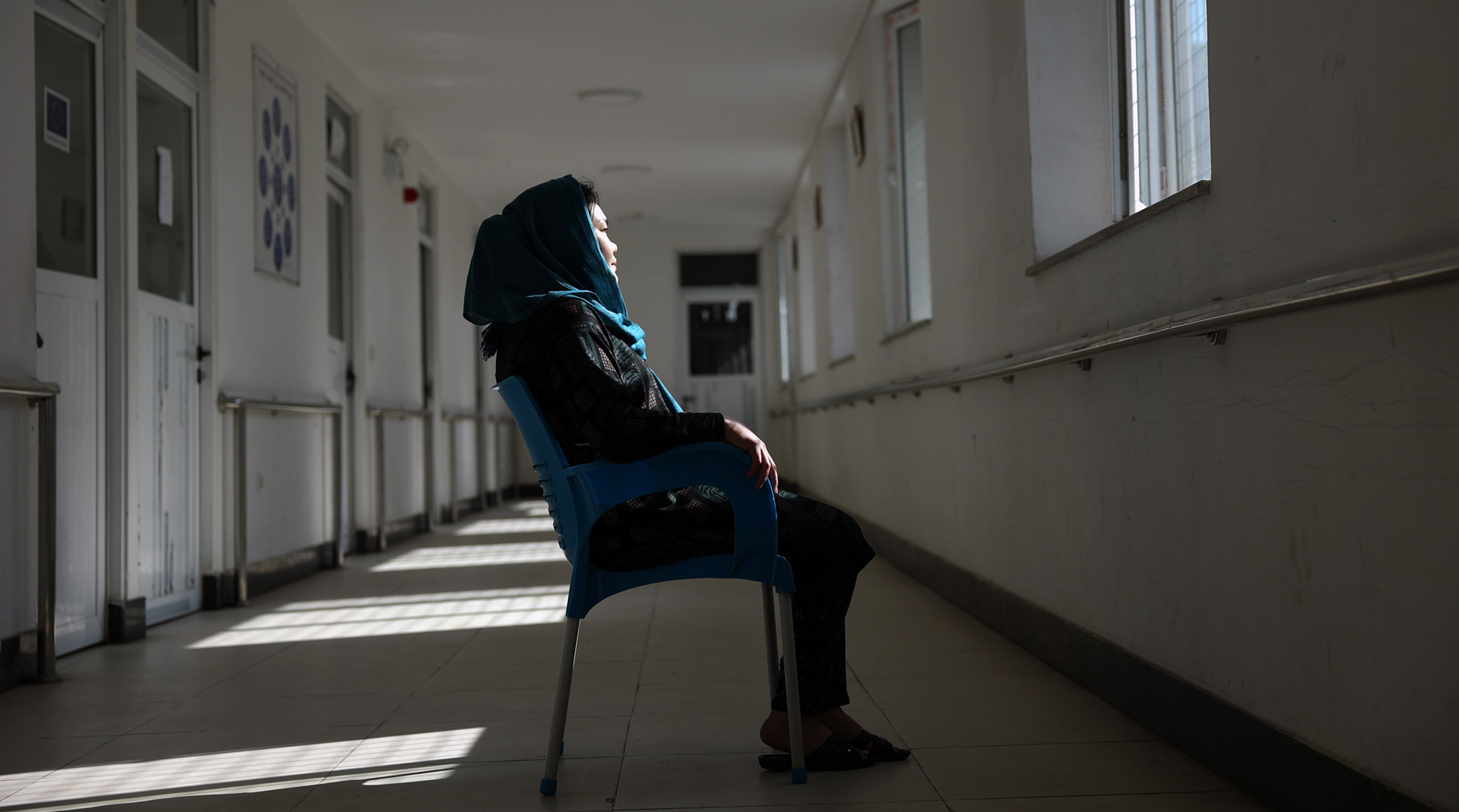 The mental health burden is especially acute among migrants and refugees, who often have limited access to psychosocial support
The mental health burden is especially acute among migrants and refugees, who often have limited access to psychosocial support
October 10, 2025 – For years, millions of people across the Eastern Mediterranean Region have lived without the certainty of a peaceful tomorrow.
On this World Mental Health Day, WHO underscores the heavy toll of conflict and instability on mental health, especially for those affected by humanitarian emergencies, where days of insecurity far outnumber days of peace, and psychological scars are deep and enduring.
Around the globe, more than 1 billion people live with mental health disorders, with anxiety and depression among the leading causes of suffering and economic loss. The burden is even heavier for migrants and refugees. By the end of 2024, over 123 million people were forcibly displaced worldwide. A staggering 71% of them are hosted in low- and middle-income countries, where health-care systems are already under immense strain. In these settings, access to mental health services is extremely limited.
In the Eastern Mediterranean Region, where 9 of the 22 countries are classified as fragile or conflict-affected, the mental health toll is higher than the rest of the world. Constant exposure to violence, repeated displacement, death and destruction, the separation of families, the loss of anything familiar, and the helplessness of war—all compounded by the lack of food, clean water and health services—have a profound mental health cost. Its full scale is yet to be fully ascertained, but the toll is certainly staggering.
Mothers of displaced children say their children are so terrified they fear the sound of heavy rain. In Syria and Yemen, entire generations have grown up knowing only conflict and insecurity. In Sudan, psychiatric hospitals have shut down, and mental health workers have fled or been displaced, leaving those in crisis with nowhere to turn. In the occupied Palestinian territory, attacks have repeatedly targeted hospitals and health workers, decimating the health system, while in Gaza, the unceasing buzz of drones has inflicted relentless psychological pain.
“What we are witnessing in our Region is unthinkable. Children should be able to imagine a future; to dream of who they want to become. But many children in places like Gaza say they wish they were dead. A world where children would rather die than live is a terrible world with terrifying consequences. The mental health impact of this will last well beyond our times,” said Dr Hanan Balkhy, WHO Regional Director for the Eastern Mediterranean.
Clinical psychologist Nour Assi has seen the toll firsthand in Lebanon, where sporadic violence has continued despite a ceasefire since November 2024.
“In my clinical work, I see how the ongoing conflict and uncertainty have intensified mental health concerns. Many people who come in describe feeling constantly on edge, hopeless or disconnected—although people are becoming more expressive and using community connections and dialogue as a way to regain control and cope with challenging emotions,” she says.
Mental health in emergency response
WHO's Regional Action Plan for Mental Health and Psychosocial Support in Emergencies 2024–2030, provides a roadmap for integrating mental health into every level of emergency response, building sustainable national capacity, and ensuring no community is without psychosocial support.
Progress is already visible. WHO is working with national health systems to train frontline health workers in psychological first aid; equip them to recognize and manage priority mental health conditions using Mental Health Gap Action Programme (mhGAP) guidelines and tools; and enable them to provide basic psychosocial support through accessible and affordable services. This includes through mobile clinics for displaced communities and ensuring the availability of psychotropic supplies. Much of this work is delivered in coordination with partners and stakeholders.
After the earthquake in eastern Afghanistan in September 2025, WHO immediately deployed mental health outreach teams to affected areas, including Kunar, Nangarhar and Laghman. These teams, made up of trained doctors, nurses and counsellors, provided psychological first aid, counselling and referrals.
In Syria, a shift toward a community-based mental health system has expanded access. Nearly 50% of all primary health care centres in the country now provide integrated mental health and psychosocial services.
Mental health as a right – and a core part of UHC
Mental health is an essential component of Universal Health Coverage and equitable health care access. Integrating mental health into primary health care is critical to ensuring people can access quality services without financial hardship, especially in countries that face fragility and conflict.
"I don't know how those affected by humanitarian emergencies will ever forget—or unsee—what they have witnessed. Beyond the visible destruction lies immeasurable loss. The true impact of wars and instability in our Region will be studied for years to come. At WHO, we see access to mental health services as a fundamental human right, and we will continue to do everything possible to help ensure that future generations do not inherit this burden of trauma," Dr Balkhy added.








